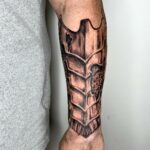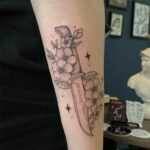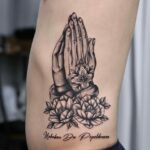Table of Contents
Hey there, ink-slingers and skin art lovers, it’s your favorite needle wielding, ink-stained mastermind. I’m the gal who’s spent more time under buzzing needles than a voodoo doll, here to tackle a question that’s more loaded than a fully inked rotary machine – How much do these bad boys actually cost?
Hold onto your sterilized gloves, because this ride isn’t just a trip through a catalogue of prices, but a labyrinth of quality, craftsmanship, and holy moly, I hope that ain’t a knock-off. After all, when it comes to tattoo machines, you’re not just buying a tool, you’re investing in your art. And believe me, honey, in this game, your equipment ain’t just a statement, it’s your signature.
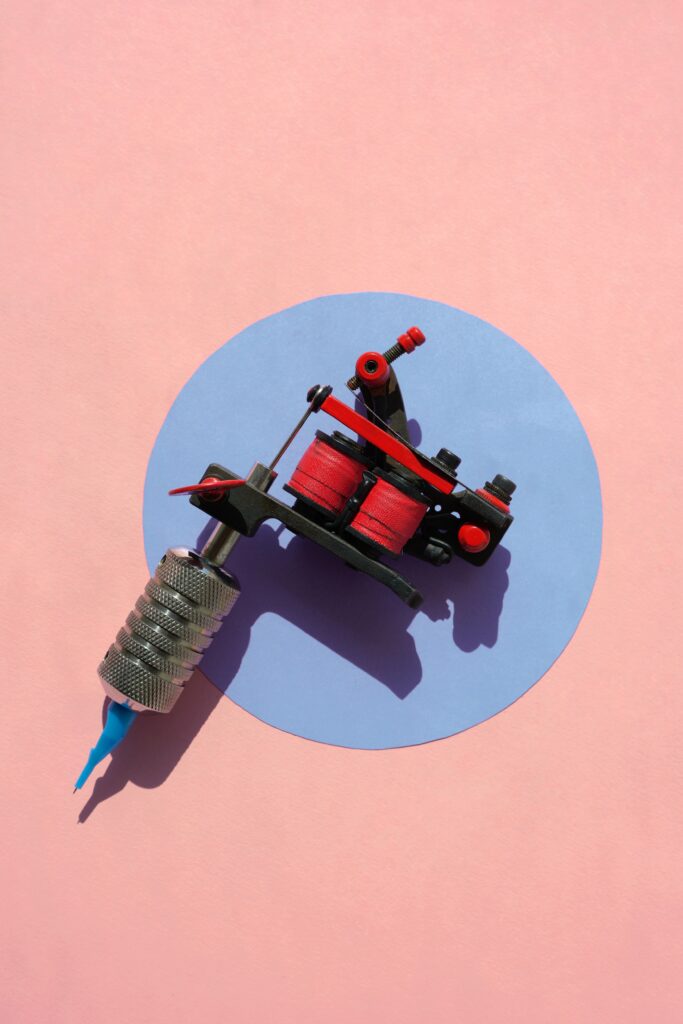
Before we delve into the world of magnetic coils and tattoo cartridges, let me tell you – if you’re expecting me to say, “you can snag a machine for the price of a fancy latte,” I hate to burst your bubble (or should I say, your balloon tattoo?). High-end, hand-crafted, professional tattoo machines aren’t sold at garage sales.
Alright, enough chit-chat. Strap in and slap on those stencil sheets. We’re about to embark on an epic journey through the wild world of tattoo machines and their price tags. Spoiler alert: There might be a few shocks along the way. The faint of heart, consider yourselves warned.
Tattoo Kit Cost
Tattoo kits, for instance, are a fantastic starting point for any newbie looking to make their mark in the industry. They are priced anywhere from $50 to a whopping $1,000. The fluctuation in price largely depends on the quality of the kit and its contents.
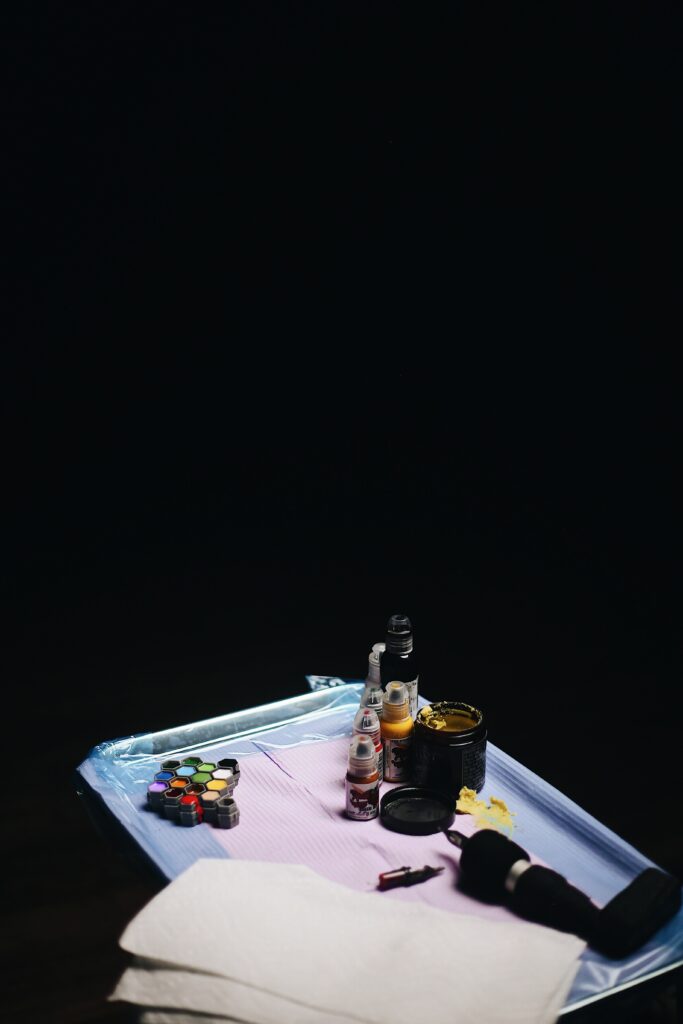
Allow me to paint a picture for you. When I first dipped my toes into the tattoo world, I bought a basic kit that set me back around $50. It came with a beginner-friendly tattoo gun and some rudimentary supplies. It was great for getting me started, but it didn’t have any of the bells and whistles of a more comprehensive kit. These premium kits come loaded with everything a budding artist could dream of – a power supply, a clip cord, a foot pedal, tattoo ink, and a plethora of needles to get you off the ground. While the sticker shock of a $1,000 might seem a bit daunting, consider it an investment in your craft.
Tattoo Gun Cost
Looking at individual tattoo guns, these little marvels usually cost between $400 and $900. Remember, that price doesn’t account for all the other supplies you’ll need to create your masterpieces. My first solo tattoo gun purchase was an exciting milestone in my career. The machine was worth every penny I paid and helped me produce some beautiful work.
Coil vs. Rotary Tattoo Machines
Choosing the right type of tattoo machine, coil or rotary, is like choosing between pencils or charcoal for a sketch artist. Neither is better overall, it all depends on what you prefer. Coil machines are usually used separately for shading and lining, requiring two separate machines. However, with a rotary machine, you can do both in one – quite a handy budget saver. And trust me, those of you who have experienced the thunderous buzz of a coil machine will appreciate the relative whisper of a rotary machine.
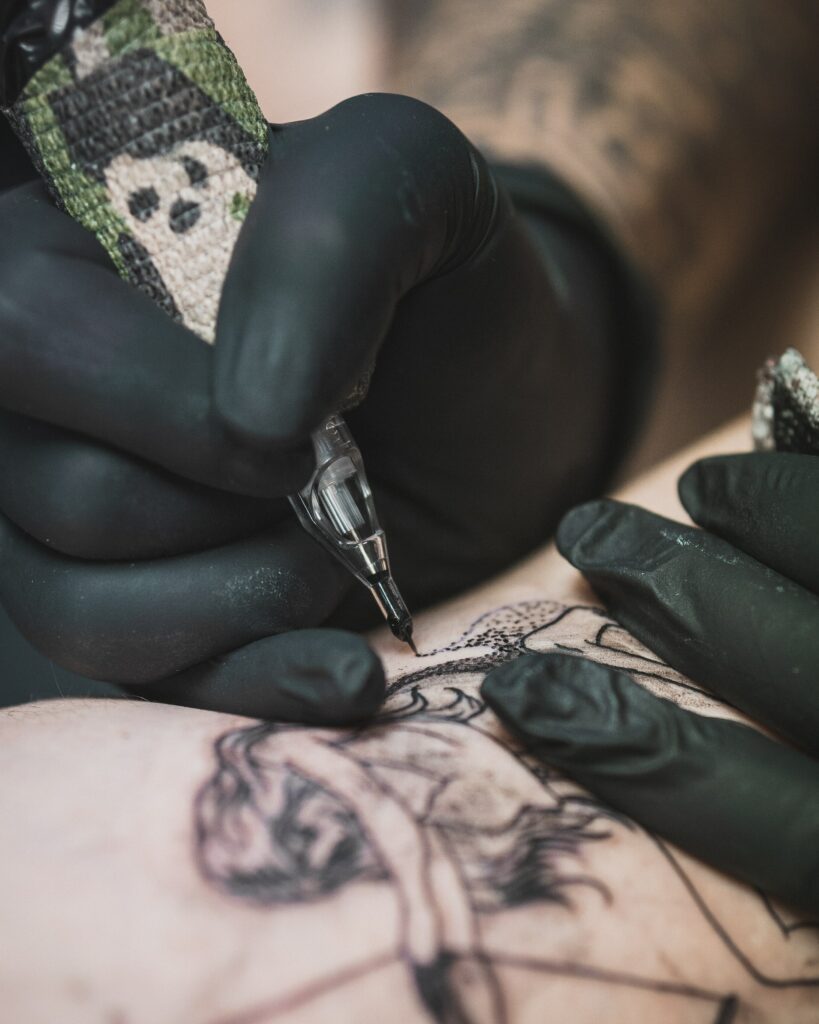
Additional Costs
Let’s talk about additional costs. These are the sneaky extras that can really start to pile up. For every tattoo you do, you’ll need disposable or reusable tubes, needles, and probably a range of tattoo ink colors. And if you didn’t opt for a tattoo kit, don’t forget about the foot pedal to control your tattoo gun. If you’re going for disposable tubes, be prepared to restock regularly. And no matter what, every tattoo artist needs to invest in cleaning supplies to sanitize needles and reusable tubes.
How to Save Money on a Tattoo Machine
Now, you might be wondering, how can I save some dough on a tattoo machine? If you’ve got time on your hands, keep an eye out for sales. Also, buying in bulk can dramatically cut costs, especially when it comes to consumable items like needles, ink, and cleaning supplies. When I started, I teamed up with fellow artists to place group orders, and the savings were substantial.
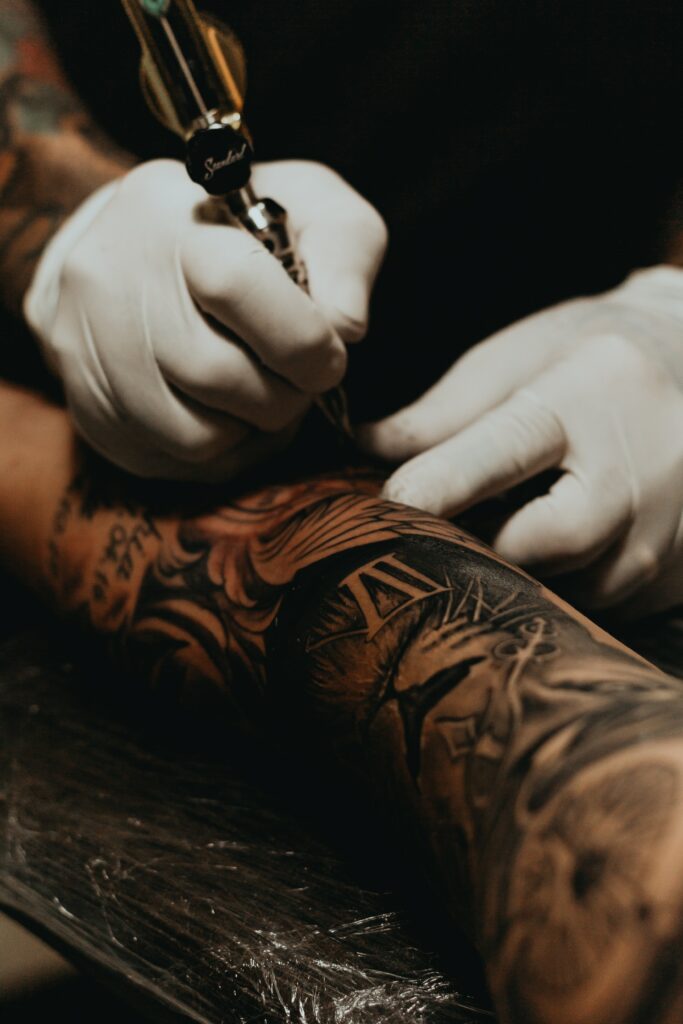
Think Long Term
Consider the long term when making your purchase. My first machine cost me a mere $100, but it barely lasted a year. Fast forward a few years, and I purchased a $500 machine that’s been my faithful companion for nearly a decade. That initial investment, while more substantial, has more than paid for itself over the years.
The cost of tattoo machines can range from as low as $50 to over $1,000, depending on the quality of the machine and any accompanying supplies. Investing more upfront in a quality machine or kit can ultimately save money over time and help you deliver the quality work your clients deserve. And remember, every dollar you put towards your tools is an investment in your craft and your future.
How To Look After Your Equipment
Proper maintenance of your tattoo machine is essential to ensure its longevity, optimal performance, and safe use. Here are some important care and maintenance tips:
1. Regular Cleaning: Clean your tattoo machine after every use to prevent the buildup of dried ink and other debris. This is not only important for the machine’s performance but also for hygienic purposes.
2. Sterilization: The parts of the machine that come into contact with the skin or ink should be sterilized regularly. Autoclaving is the industry standard for sterilization, but some parts may need special handling. Always check the manufacturer’s instructions.
3. Lubrication: Certain parts of the tattoo machine, especially if it’s a coil machine, may need regular lubrication for smooth operation. Always use the recommended type of lubricant.
4. Proper Storage: When not in use, store your tattoo machine in a clean, dry place. Avoid leaving it in areas with extreme temperature changes as it could cause unnecessary wear and tear.
5. Regular Inspection: Periodically inspect your machine for any wear or damage. Look out for problems like bent or dull needles, loose parts, or faulty electrical connections.
6. Professional Servicing: If your machine needs repair, it’s usually best to get it serviced by a professional. Attempting to repair it yourself could cause more harm than good, especially if you’re not familiar with its internal workings.
7. Gentle Use: Avoid dropping your machine or subjecting it to any other type of physical shock. This could misalign its components and affect its performance.
8. Proper Setup and Teardown: Set up and disassemble your machine according to the manufacturer’s instructions. Incorrect assembly could damage the machine over time.
By following these tips, you can significantly prolong the life of your tattoo machine, enhance its performance, and save money in the long run by preventing frequent replacements. It’s a win-win situation!
What Are The differences Between High-end, Hand-crafted, Professional Tattoo Machines & Basic Tattoo Kits?
High-end, hand-crafted, professional tattoo machines are the Ferraris of the tattoo world. These are meticulously designed by seasoned artisans who understand the intricacies of the tattoo process. Hand-crafted machines typically feature premium materials, superior workmanship, and often, custom details. They’re built to last, offering reliability, precision, and a level of performance that can help artists execute highly detailed, complex designs. They may also be more ergonomically designed, reducing strain on the artist’s hand during those marathon tattoo sessions. These machines are typically preferred by experienced professionals who understand their craft deeply and appreciate the nuances of a well-made machine.
On the other hand, basic tattoo kits offer a more economical entry point into the industry. These kits typically come with a tattoo machine (often referred to as a tattoo gun), along with essential supplies like ink, needles, and power supply. The machines included in these kits are usually mass-produced, which can mean less precision in their design and performance. However, they provide a solid starting point for those who are new to the craft or hobbyists who aren’t ready to invest in a high-end machine. They allow aspiring artists to learn the ropes and understand the basics before investing in more sophisticated equipment.
| Features | High-end, Hand-Crafted, Professional Tattoo Machines | Basic Tattoo Kits |
|---|---|---|
| Craftsmanship | Meticulously designed and handcrafted by seasoned artisans. | Generally mass-produced, with less attention to individual detailing. |
| Materials & Quality | Made with premium materials, offering superior workmanship and durability. | May be made with more affordable materials, potentially compromising on longevity. |
| Performance | Offers high precision and consistency, suitable for complex designs. | Adequate for learning the basics and simpler designs. |
| Price | Higher price point due to superior materials and craftsmanship. | More economical, offering a good entry point for beginners. |
| Included Supplies | Usually sold as standalone machines. | Often comes with essential supplies like ink, needles, and power supply. |
| User Experience | May feature ergonomic designs to reduce strain during long tattoo sessions. | Standard design, functionality might not be as refined. |
| Ideal For | Experienced professionals who demand the best performance and durability. | Beginners, hobbyists, or those learning the ropes of tattooing. |
But remember, whether you’re using a state-of-the-art hand-crafted machine or a more basic model from a kit, skill and technique are paramount. A high-end machine can’t compensate for a lack of skill, just as a basic one won’t necessarily limit a talented and creative artist.
As always in the tattoo world, it’s not just about the tools you use, but how you use them. Choose equipment that aligns with your skill level, budget, and professional goals, and always prioritize safety and sanitation, no matter what equipment you’re using.
Conclusion
In wrapping up our inky exploration, let’s look at the placement and possible hitches along the road to tattoo bliss. Choosing the perfect spot for your tattoo is a dance between personal style, pain tolerance, and practicality. Certain areas, such as the inner arm or upper thigh, are quite popular for their lower pain levels and ease of concealment. But remember, regardless of where you choose, good tattooing isn’t cheap, and cheap tattooing isn’t good. Expect to pay anywhere from $50 to several hundred dollars, depending on the complexity and size of your design.
As for potential pitfalls, while tattooing has become a commonplace practice, it doesn’t come without its risks. Infection, allergic reactions, and scarring are all possibilities, not to mention the chance of tattoo regret. Make sure you’re working with a reputable artist who adheres to all necessary safety and sanitation guidelines. Aftercare is crucial too, so follow your artist’s instructions to the letter to ensure your skin art heals properly. The world of tattooing is an exciting one, rich with creativity and self-expression. So take your time, do your research, and make the choices that are right for you. Happy inking!

